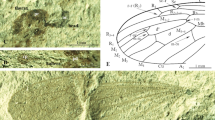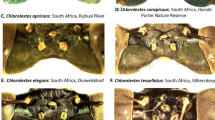Abstract
RECENT literature abounds with criticism of the current trend to split genera. The subfamily Cypraeinae (family Cypraeidae) is a case in point1,2. Linnæus's genus Cypraea, which forms the basis for the subfamily, contained 42 species. At present approximately 160 are recognized. These species have been distributed in no fewer than 60 genera over the past twenty-five years, 52 of which appear in the latest work on the group3.
This is a preview of subscription content, access via your institution
Access options
Subscribe to this journal
Receive 51 print issues and online access
$199.00 per year
only $3.90 per issue
Buy this article
- Purchase on Springer Link
- Instant access to full article PDF
Prices may be subject to local taxes which are calculated during checkout
Similar content being viewed by others
References
Burch, J., Systematic Zoology, 5, 144 (1956).
Verdcourt, B., Nature, 178, 1414 (1956).
Allan, J., “Cowry Shells of World Seas” (Melbourne House, 1956).
Thiele, J., Handbuch der Systematischen Weichtierkunde (1931).
Schilder and Schilder, Proc. Malac. Soc., 23, 119 (1938–39).
Steadman and Cotton, Rec. S. Austr. Mus., 8, 503 (1946).
Author information
Authors and Affiliations
Rights and permissions
About this article
Cite this article
KAY, A. The Genus Cypraea . Nature 180, 1436–1437 (1957). https://doi.org/10.1038/1801436b0
Issue Date:
DOI: https://doi.org/10.1038/1801436b0
Comments
By submitting a comment you agree to abide by our Terms and Community Guidelines. If you find something abusive or that does not comply with our terms or guidelines please flag it as inappropriate.



